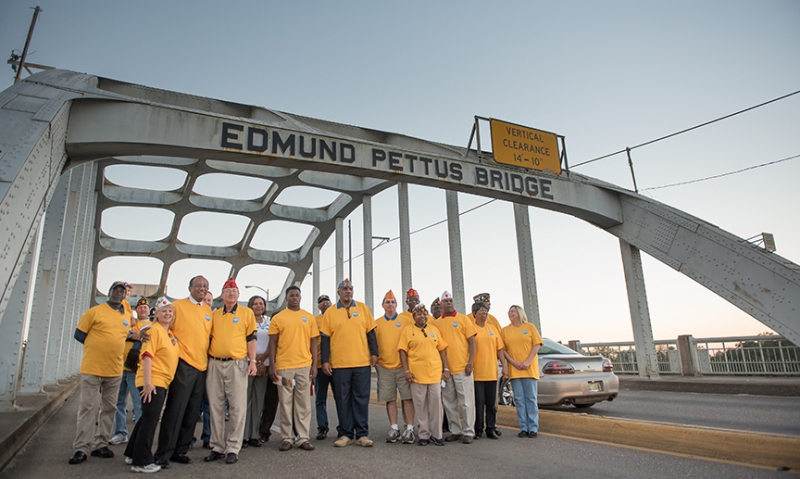
Legionnaire Benson Webb looks back on being an 11-year-old in Selma, Ala., in the midst of the Civil Rights Movement.
As an 11-year-old African-American in the midst of the Civil Rights Movement in Selma, Ala., in 1965, Benson Webb didn’t really understand what was going on around him.
But he did know the look of fear, displayed both on the faces of those who marched with Dr. Martin Luther King and other activists, and those who wanted to but were afraid of the consequences.
“I saw fear in adults’ faces,” said Webb, commander of American Legion Post 324 in Selma. “You knew if you went to march to the courthouse and your face was seen, you could lose your job. If you were the primary breadwinner in your house, you didn’t know if you’d have a job the next day.
“I remember seeing people standing along the street when we marched. You could see in their eyes they wanted to be with us, but they couldn’t take a chance of losing their job.”
Webb, who served in the U.S. Marines for three and a half years in the 1970s, would hear his mother and others talk about the Civil Rights Movement while it was going on. But he still wasn’t completely sure what was happening around him.
“It really was just the fervor of what was going on in the city, and I sort of just got carried along with the tide,” he said. “There were day-to-day activities, Mass meetings, things like that. But because it was happening so fast, I didn’t really have time to digest it. It was really like I was more of a witness to what was going on, rather than participating in making a change.
“But I learned a lot through all that. It shaped a lot of my views on things.”
It was somewhat nostalgic for Webb in November 2015 when then-National Commander Dale Barnett staged one of his Walks for Veterans in Selma crossing Edmund Pettus Bridge – the same bridge where Webb marched with King during the activist’s Prayer March on March 9, 1965. Webb helped organize Barnett’s walk and also has taken part in several march reenactments through the years.
“It’s something that you have to continue to keep it alive,” said Webb.
Though he says it’s not a literal similarity, Webb does see a figurative one between what the Civil Rights Movement did for blacks and what The American Legion does for veterans. “The American Legion has taken a stand for our veterans and addressed what needs to be addressed,” he said. “That’s what the Civil Rights Movements did.”
Though more than 50 years have passed since the Voting Rights Act was signed into law, Webb said he still doesn’t look back on being a part of a historic period of time – nor does he plan on doing so any time soon.
“I haven’t gotten to that moment in my life yet,” he said. “I’m kind of like a farmer with a farm. I just get up day in and day out and do what needs to be done. I may go my whole life without fully understanding what was going on around me because I feel I will always have work to do. I’ve got no time to rest on my laurels and no time to rethink things when there’s still work to be done.”
- Honor & Remembrance

